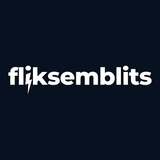Self-Hosted AI: How Companies Can Innovate Safely Without Sharing Data

In today's AI-driven world, many organizations are concerned about where their data goes when using AI tools. For companies handling sensitive information, keeping data private is essential. Self-hosted AI offers a solution that keeps your data within your organization while still leveraging the power of artificial intelligence.
Why Self-Hosted AI is Becoming Important
When using tools like ChatGPT or Microsoft Copilot, everything you type is sent to their servers. For many businesses, this creates unacceptable risks, especially when dealing with:
- Confidential business information
- Customer personal data
- Financial records
- Internal documents
The European Union recognizes these concerns with its new AI Act, which came into effect on August 1, 2024 and will be implemented in phases:
- From February 2, 2025: Prohibition of certain AI systems and requirements for AI literacy
- From August 2, 2026: Additional rules for high-risk AI systems
- Fully enforced by: August 2, 2027
This legislation highlights why many companies are looking for alternatives that give them more control over their data.
The Privacy Benefits of Self-Hosted AI Solutions
When you run AI models on your own systems instead of in the cloud, your sensitive data stays within your control. This privacy-first approach offers key advantages:
1. Complete Data Control
Your information stays behind your firewall. There's no risk of your sensitive business data being accessed by third parties like OpenAI, Google, or Microsoft.
2. Easier Compliance
Meeting regulations like GDPR and the new EU AI Act becomes simpler when you control where your data is stored and processed.
3. Working with Sensitive Information
You can safely use AI with confidential materials like:
- Resumes and personnel files
- Financial reports
- Strategy documents
- Customer data
4. Preventing Data Leaks
Employees can't accidentally share sensitive information with external AI services, eliminating a common security risk.
User-Friendly Solutions for Private AI
Recent advances have made self-hosted AI more accessible than ever. Two notable options include:
Ollama: Simple Self-Hosted AI
Ollama is a free tool that makes running AI models on your own systems straightforward. It offers:
- Support for popular open-source models like Llama 3, Mistral, and Openchat
- Easy integration with your existing tools
- Works on Windows, Mac, and Linux
- No data sharing with external parties
- Control over your entire AI environment
Ollama helps organizations improve privacy and maintain control over their AI infrastructure—crucial for handling sensitive information.
DeepSeek R1: Advanced Capabilities
For more sophisticated needs, DeepSeek R1 provides powerful AI features while keeping data private:
- Performance comparable to leading commercial solutions
- Available in different sizes to match your needs
- Excellent for complex tasks
- Can run within your own systems
Real-World Examples
Example 1: Banking Security
A bank uses self-hosted AI to spot unusual transactions without sending customer data outside its secure network. This keeps all financial information protected while still benefiting from AI's analytical power.
Example 2: HR Privacy
An HR team needs to analyze job applications to find the best candidates. Using self-hosted AI, they can compare resumes without breaking privacy rules or risking applicants' personal information.
Example 3: Protecting Intellectual Property
A product team uses AI to analyze market research and design documents without exposing valuable company secrets to competitors through third-party AI services.
Benefits Beyond Privacy
While privacy is the main advantage, self-hosted AI offers other benefits:
- Different cost structure than subscription-based cloud AI
- Complete control over your AI tools
- No waiting times or service interruptions
- Ability to customize for your specific needs
- No dependency on external providers
Getting Started is Simpler Than You Think
Getting started with self-hosted AI is more straightforward than you might think. With the right support and guidance, organizations can implement privacy-focused AI solutions that meet their specific needs. While some technical considerations are involved, the path to data-secure AI doesn't have to be complicated. The key is finding the right approach that balances your privacy requirements with your operational capabilities.
Key steps to begin:
- Identify your goals: What do you want to achieve with AI? Like improving customer service or analyzing internal documents
- Choose the right solution: Simple models are often sufficient for everyday tasks
- Set up safely: With the right guidance, you can quickly establish a secure AI environment
- Familiarize your team: Brief training helps employees make the most of the new capabilities
A Balanced Approach to AI
Self-hosted AI offers a privacy-first way to use artificial intelligence while keeping your data under your control. While cloud solutions may offer more features, self-hosted options prioritize your data security and privacy.
For organizations handling sensitive information or working in regulated industries, exploring self-hosted AI makes perfect sense. Many companies take a mixed approach, using self-hosted AI for sensitive work and cloud services for less sensitive tasks.
Interested in exploring how self-hosted AI could work for your organization? Contact us to discuss your specific needs.




